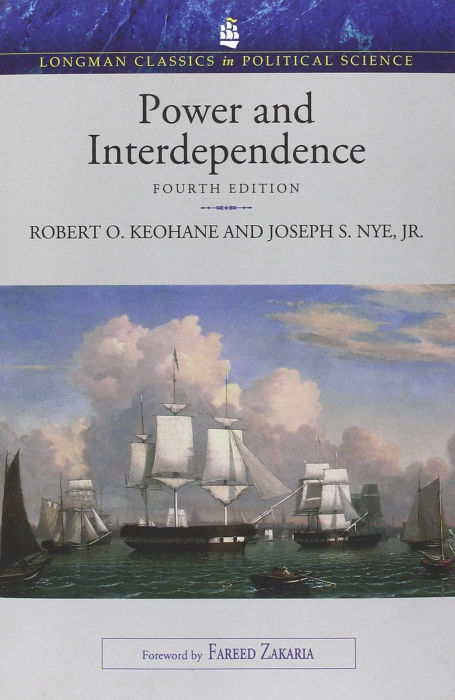Books
Robert O. Keohane, Joseph S. Nye
Power and Interdependence
Longman Classics in Political Science
Robert O. Keohane and Joseph S. Nye’s Power and Interdependence reshaped international relations theory by showing that power in the modern world is not just about armies and alliances, but also about the intricate webs of economic, social, and political connections that bind states together. Their groundbreaking concept of “complex interdependence” challenged the dominance of traditional realism, arguing that global affairs are driven as much by cooperation and mutual vulnerability as by competition. This book remains a touchstone for anyone seeking to understand the true mechanics of world politics in an era of globalization.
First published in 1977 and updated for new global realities, Power and Interdependence explores how the rise of economic ties, international organizations, and technological advances have transformed the way states interact. Keohane and Nye distinguish between “sensitivity interdependence” (how quickly and significantly changes in one country affect another) and “vulnerability interdependence” (the costs of adjusting to those changes), arguing that these forms of interdependence can both empower and constrain nations. They illustrate their arguments with historical and contemporary examples, such as Japan’s use of force in 1941 to address economic vulnerabilities and the U.S. response to the 1975 oil crisis. The book also analyzes the roles of international regimes—networks of rules and norms that shape state behavior—highlighting how these institutions can mediate power and influence outcomes beyond simple military might.
Keohane and Nye’s model of complex interdependence rejects the idea of a strict hierarchy of issues, where military security always dominates. Instead, they argue that economic, environmental, and social issues can be just as important and that the line between domestic and international politics is increasingly blurred. In systems characterized by complex interdependence, military force becomes less relevant for resolving disputes, and power is exercised through control over resources, information, and institutions. The authors also discuss how regime changes—such as shifts in international monetary policy or ocean governance—can reshape the distribution of power and the rules of global politics
Power and Interdependence stands out for its nuanced analysis of global affairs, offering a framework that remains highly relevant in today’s world of economic globalization, digital communication, and transnational challenges. By emphasizing the importance of non-military forms of power and the role of international organizations, Keohane and Nye provide a more comprehensive and realistic understanding of how states pursue their interests and manage interdependence. The book’s insights continue to inform debates on everything from trade policy to environmental cooperation, making it essential reading for students, scholars, and practitioners of international relations.

